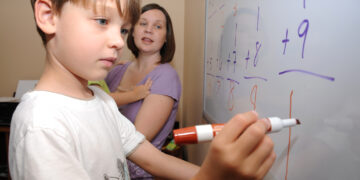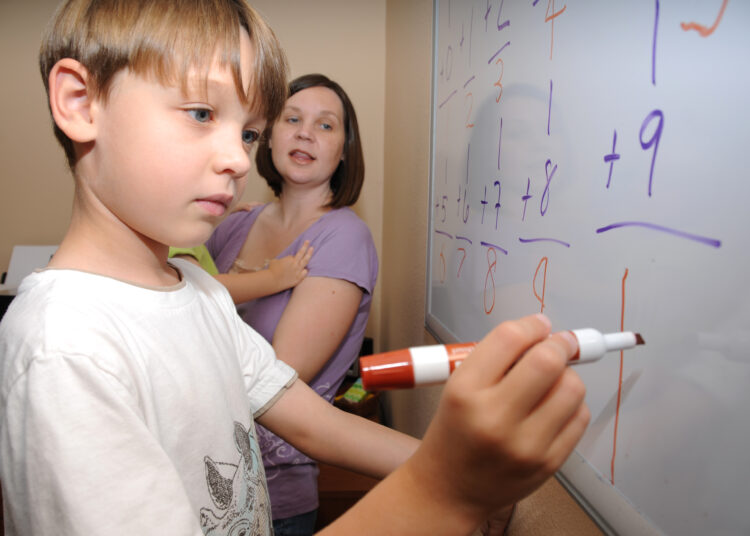In what seems a pretty nasty move in months where most Americans are thrust suddenly and unforgivingly into their new roles as temporary homeschoolers, Harvard Magazine published an essay calling for “a presumptive ban” on homeschooling in the United States.
The short essay summarizes a much longer work by Elizabeth Bartholet, Wasserstein public interest professor of law and faculty director of Harvard Law School’s Child Advocacy Program. “Homeschooling,” Bartholet believes, “not only violates children’s right to a ‘meaningful education’ and their right to be protected from potential child abuse, but may keep them from contributing positively to a democratic society.” Whereas in countries such as Germany, which outlaws homeschooling altogether, or France, which gives mandatory annual tests to homeschooled students, the United States is “essentially an unregulated regime.” This creates the perfect environment, Bartholet writes, for potential child abusers, who can keep their children at home and away from the watchful eyes of mandatory reporters like teachers or other education personnel. Furthermore, up to 90 percent of those homeschooling in the United States “are driven by conservative Christian beliefs, and seek to remove their children from mainstream culture.”
Bartholet insists she still believes parents should have “very significant rights to raise their children with the beliefs and religious convictions that the parents hold.” “The issue is,” she continues, “do we think that parents should have 24/7, essentially authoritarian control over their children from ages zero to 18? I think that’s dangerous.”
This essay is dangerous and outright offensive and incorrect on a variety of levels. First, it is a blatant attack on parents’ rights, along with the assumption that education personnel protect children better than do their parents. As I have documented, children are actually safest when they are with their married, biological mother and father. Almost all abuse, sexual or physical, occurs outside this parameter. And a letter to the editor of Harvard Magazine published at the Foundation for Economic Freedom highlights the abuse that children in traditional school settings endure, including bullying and even abuse at the hands of teachers and administrators.
Second, the countries that Bartholet cites as holding up children’s “rights” by prohibiting homeschooling are infamous for their poorly documented, hasty, and heartbreaking child seizures. Michael Farris, co-founder of the Homeschool Legal Defense Association and current CEO of Alliance Defending Freedom, has written for a forthcoming issue of The Natural Family (a publication of the International Organization for the Family) of the horrors endured by the Wunderlich family of Germany. On August 23, 2013, a group of 33 police officers and 7 youth welfare officers threatened to use a battering ram against the door of the Wunderlich family’s home. Once inside, they shoved the father into a chair and seized the family’s four children, all for the crime of homeschooling them. One officer pushed aside the mother as she tried to kiss one of the daughters goodbye, saying “Too late now!” The children remained away from their parents for over a year, and the case is still being heard at the European Court of Human Rights. Cases like this are not uncommon in more “tolerant” nations that forbid or tightly regulate homeschooling.
Third, this essay gets very wrong a number of positive things about homeschooling. It is increasingly diverse, as studies have shown that up to 32% of homeschoolers are non-white/Caucasian. Homeschoolers also tend to do better on standardized tests and graduate college at higher rates. Another study found that “Compared to children attending conventional schools . . . research suggests that [homeschoolers] have higher quality friendships and better relationships with their parents and other adults. They are happy, optimistic, and satisfied with their lives.” And as for preparation to participate in a democracy, research also demonstrates that homeschoolers volunteer, attend public meetings, and vote at higher rates than do members of the general population.
In short, Professor Bartholet is relying on outdated statistics, faulty narratives and misconceptions, fear-mongering, and cherry-picking of a few nasty and tragic stories to make her points. Parents across the United States (and the world) can breathe a sigh of relief: Your currently homeschooled children are not suffering because they’re at home. In fact, they may be doing much better. And if you, their parent, the one who knows and loves them more than any educator ever could, decide come August that homeschooling is the best route for them, be comforted in knowing that the elites at Harvard Magazine are more concerned about maintaining the status quo of the highly powerful education machine (including universities, teachers unions, public offices, etc.) than they are about your actual children.




















Discussion about this post